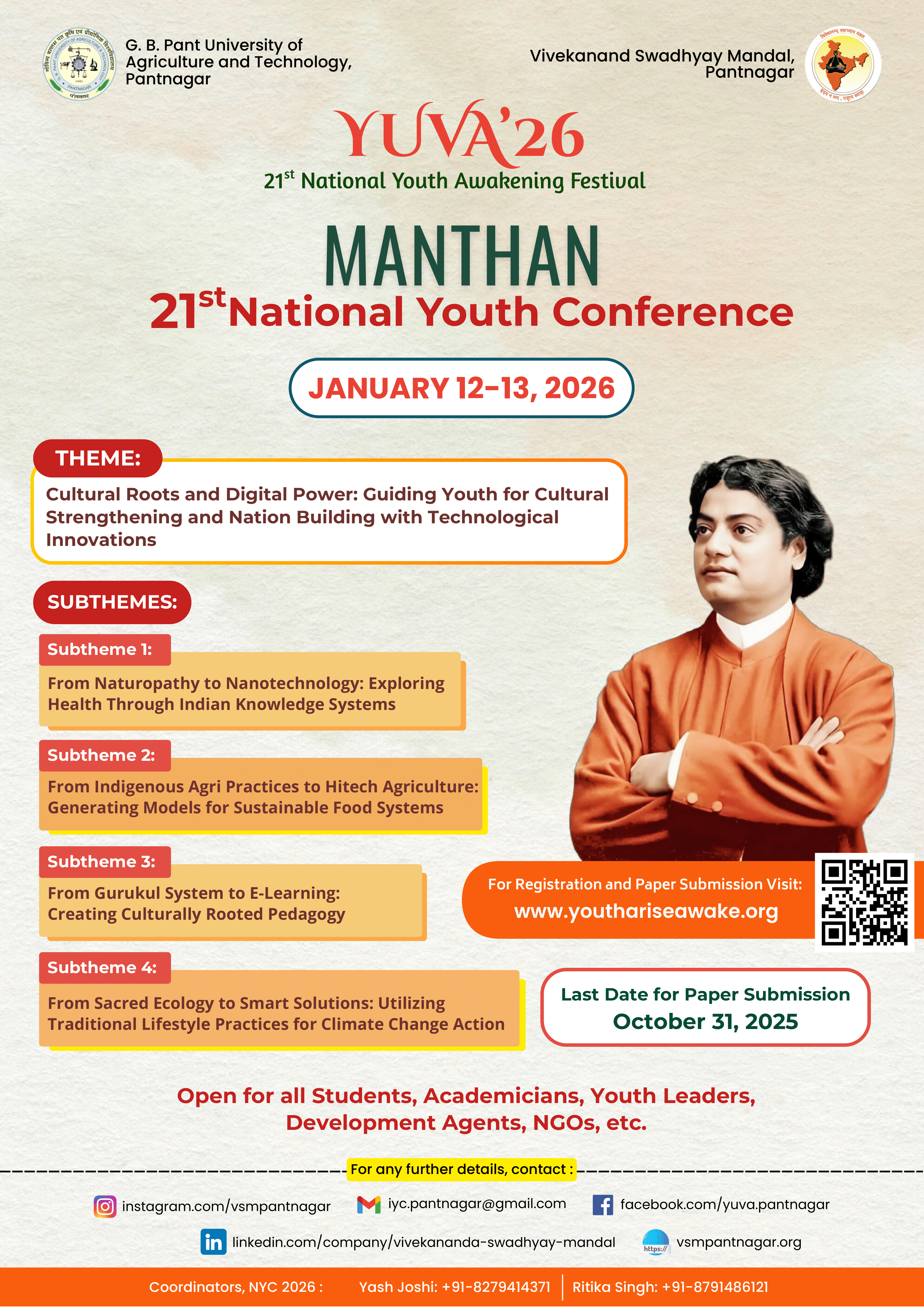
National Youth Conference 2026
Theme: "Cultural Roots and Digital Power: Guiding Youth for Cultural Strengthening and Nation Building with Technological Innovations."
India stands at the crossroads of its ancient cultural heritage and a dynamic digital future. Our heritage is a living force that provides national identity and unity, while our digitally native youth possess the fluency to drive innovation and growth. The central challenge is bridging these two worlds. Our youth are the essential solution—a natural bridge between the past and the future. With their energy, ideas, and technological savvy, they are uniquely positioned to reimagine our cultural legacy in a contemporary context.
By harnessing digital platforms, they can preserve traditional arts, share ancient wisdom with a global audience, and create new expressions that blend the old with the new. This process strengthens our cultural fabric, creates economic opportunities, and enhances India's soft power on the global stage. Empowering our youth with both cultural values and digital skills is a fundamental necessity for nation-building. It equips them to be active agents of transformation, ready to tackle societal challenges and build a more inclusive, just, and prosperous India.
The four subthemes for the 21st Youth Conference :
For Paper Submission
GUIDELINES FOR PAPER SUBMISSION
- Language and Author Collaboration: All papers must be written exclusively in English. Teams of up to three authors may submit a paper on any designated subtheme.
- Paper Content and Format:
Submissions should be between 2000 to 3000 words, excluding references.
Papers should be formatted using Times New Roman 12-point font, single spacing, with one-inch margins on all sides and standard 8.5x11 inch page dimensions.
All figures, graphs, and tables must be of high quality. - Academic Integrity and Submission: Papers must be original work and properly cited. Plagiarism will not accepted. Submissions must be in Microsoft Word format (.doc or .docx). Incomplete submissions will not be considered. Papers must include the title, authors' full names, and affiliated institutions. Standard abbreviations may be used.
- Last date of paper submission is November 15, 2025.
- Incomplete submissions will not be considered.
Click here to download conference paper template 
For further details:
Contact : Ritika Singh (+91-8791486121) ,
Yash Joshi (+91-8279414371)
E-mail: [email protected]
